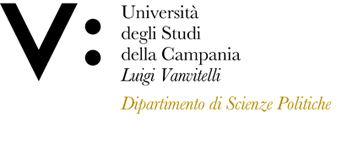Diego GIANNONE
Insegnamento di GLOBAL POLITICS
Corso di laurea magistrale in RELAZIONI E ORGANIZZAZIONI INTERNAZIONALI
SSD: SPS/04
CFU: 10,00
ORE PER UNITÀ DIDATTICA: 60,00
Periodo di Erogazione: Secondo Semestre
Italiano
| Lingua di insegnamento | Inglese |
| Contenuti | L’insegnamento di Global Politics intende fornire agli studenti una mappatura delle principali teorie di Relazioni Internazionali, e al contempo una conoscenza delle trasformazioni politiche che hanno interessato l’ordine internazionale liberale. Attraverso una prospettiva di lunga durata e una solida analisi delle principali teorie delle Relazioni Internazionali, verranno ricostruite le tappe che hanno condotto all’affermazione e poi al declino dell’Occidente, evidenziando sia le cause della crisi dell’egemonia statunitense sia i rischi e le sfide posti dall’emergere di potenze alternative, quali Russia e Cina. |
| Testi di riferimento | C. Reus-Smit, D. Snidal. The Oxford Handbook of International Relations, Oxford University Press, Oxford, 2010 [Capitoli: Parte I e II (tutti); Parte III (capp. 6, 7, 9, 11, 17, 19, 23); Parte V (cap. 31). |
| Obiettivi formativi | Tenuto conto dei contenuti del corso, sono di seguito indicati i descrittori dei risultati di apprendimento previsti. |
| Prerequisiti | Non sono previste propedeuticità. |
| Metodologie didattiche | L’insegnamento si articola in lezioni frontali e interattive che possono prevedere l’utilizzo di supporti informatici o materiali multimediali |
| Metodi di valutazione | L’esame consisterà in una prova orale volta ad accertare l’apprendimento dei contenuti dell’insegnamento e dei libri di testo. Il punteggio della prova è attribuito mediante un voto espresso in trentesimi. |
| Altre informazioni | La frequenza non è obbligatoria, ma è vivamente consigliata. Ulteriore materiale didattico potrà essere fornito nel corso delle lezioni agli studenti frequentanti. |
| Programma del corso | Il programma di insegnamento si articola nelle seguenti sezioni: |
English
| Teaching language | English |
| Contents | The course in Global Politics aims to provide students with a mapping of the main theories of International Relations, and of the political transformations of the international liberal order. Based on a longue durèe perspective and a well-grounded analysis of the key IR theories, the course will analyze the main phases of the rise and fall of the West, placing emphasis on the causes of the crisis of American hegemony, as well as on the risks and challenges posed by the rise of new powers such as Russia and China. |
| Textbook and course materials | C. Reus-Smit, D. Snidal. The Oxford Handbook of International Relations, Oxford University Press, Oxford, 2010 [Chapters: Part I and II (all); Part III (ch. 6, 7, 9, 11, 17, 19, 23); Part V (ch. 31). |
| Course objectives | Based on the course content, the descriptors of expected learning achievements are set out below: |
| Prerequisites | No prerequisite is required. |
| Teaching methods | The course consists of interactive classroom lessons with the support of multimedia material. |
| Evaluation methods | The examination will consist of an oral interview aimed at verifying the learning of the course content and textbooks. The overall score is expressed on a scale from 0 to 30. |
| Other information | The attendance is not mandatory but strongly recommended. Further learning material will be provided to attending students. |
| Course Syllabus | The teaching program is made up of the following sections: |








